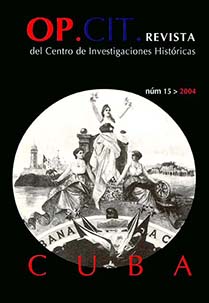Abstract
This work provides a critical panorama of the first three decades of the Cuban Republic. As its central theme, it takes the analysis of the dominant political culture, the reconstruction of the national idea and the never-solved presence of racial conflict. It emphasizes the politicians‘ initial stance, a legacy of the 95 conflict, rejecting the possibility of reaching peaceful compromises, which led to the announcement and war of 1906. Popular aspirations to democratize access to ownership of the land and to limit ownership for foreigners were permanently frustrated. Repression through the terror of the Partido Independiente de Color uprising brought the failure of the attempt to redefine and democratize the national project of the separatist elite through the participation of blacks and colored people.

